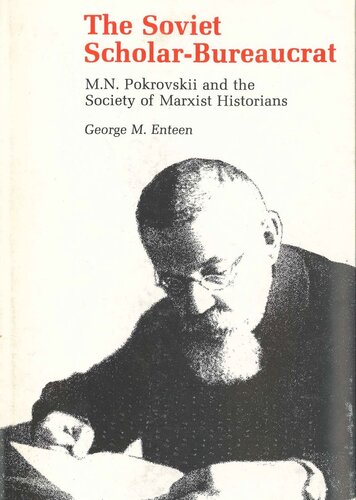

Most ebook files are in PDF format, so you can easily read them using various software such as Foxit Reader or directly on the Google Chrome browser.
Some ebook files are released by publishers in other formats such as .awz, .mobi, .epub, .fb2, etc. You may need to install specific software to read these formats on mobile/PC, such as Calibre.
Please read the tutorial at this link: https://ebookbell.com/faq
We offer FREE conversion to the popular formats you request; however, this may take some time. Therefore, right after payment, please email us, and we will try to provide the service as quickly as possible.
For some exceptional file formats or broken links (if any), please refrain from opening any disputes. Instead, email us first, and we will try to assist within a maximum of 6 hours.
EbookBell Team

4.8
14 reviewsMikhail Nikolaevich bridges 19th- and 20th-century Russian culture as well as Leninism and Stalinism, and later became an instrument in Khrushchev's effort at de-Stalinization. Pokrovskii was born in Moscow in 1868. He described the years before 1905 as his time of "democratic illusions and economic materialism." His interest in legal Marxism began in the 1890's but it was only with the Revolution of 1905 that he stepped into the Marxist camp.
Pokrovskii was a leader in the creation of the "historical front"—an organization of scholars authorized to work out a Marxist theory of the past. He formalized the bond between scholarship and politics through his belief that historians should assist party authorities in effecting a cultural revolution; thus he supported Stalin's collectivization of agriculture and leg a campaign to silence non-Marxist scholars, some of whom he had defended earlier. Yet his accommodation with Stalin was uneasy, and after Pokrovskii's death in 1932 his allegedly "abstract sociological schemes" were condemned and his career was dubbed pokrovshcina—era of the wicked deeds of Pokrovskii.